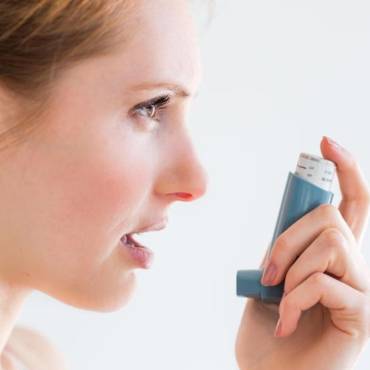Asthma is a major chronic condition affecting millions worldwide, yet little is known about its potential long-term consequences. In this article, we get to learn about the complications and their long-term effects.
About Asthma
Asthma can begin when you are a child or adult. It is a chronic respiratory condition that causes inflammation and narrowing of the airways. The respiratory condition can include the following symptoms:
- Coughing
- Difficulty breathing
- Wheezing
- Tightness in the chest
There is no cure for the condition, but if you stay away from triggers that worsen symptoms and use medication, you can keep it under control. If this doesn’t happen, asthma complications and long-term effects can impact your overall health and daily life. The severity of symptoms varies from person to person. What happens if asthma is not treated? Well, you may have associated complications.

What Happens When Asthma Isn’t Controlled?
What can happen if asthma is left untreated? Well, if your asthma is mild to moderate but isn’t under control, you may:
- Cough
- Feel like something is tightening around your chest
- Wheezing (a whistling sound) when you exhale or inhale
- Find difficulty in breathing
In children, uncontrolled asthma can slow down growth or even delay puberty.
Some people’s lungs change when the tubes that bring air in and out of them become swollen. The airways (the passage by which air reaches an individual’s lungs) get narrower, your lungs have scars, and it’s difficult to breathe. The condition is often referred to as airway remodeling. Health care experts need to learn more about this condition. Airway remodeling can make asthma medications less effective; you must begin treating your symptoms as soon as possible. Your lungs are exposed to the possibility of being infected with pneumonia too. They also may not work as well when you age. Loss of function to some extent is normal at an older stage, but asthma that isn’t controlled can speed up the process. So, let your doctor know if you find difficulty breathing as an adult. They can identify if it’s due to aging, asthma, or other medical conditions.
Difference between uncontrolled asthma & severe asthma
If you continue to have asthma symptoms while taking your medications on time, you may have severe asthma. If this is the case, you can have asthma symptoms every day. This can have a huge impact on your overall life in many ways. You may:
- Find a problem in performing at school or the workplace
- Take time off from work or school
- Constantly waking up in the middle of the night and not able to sleep well
- Feel stressed and have depression
A serious asthma episode may make your visit to the hospital as severe asthma symptoms may lead to two or more hospital visits a year. You may need to take a corticosteroid drug to manage your asthma symptoms. If you have severe asthma, you could have adverse effects from the medicines you take to control asthma in the long term.
Taking control of symptoms
If you suspect you have asthma, inform your doctor. If you have already been diagnosed with the condition, look for signs that your treatment isn’t working or your asthma is worsening. Certain health conditions like the common cold and flu can cause flareup, but it shouldn’t happen often. If you have been using your asthma medication regularly but using quick relief treatment more than twice a week, your asthma may be severe or isn’t under control. Let your doctor know if you have any of these untreated asthma symptoms. Your doctor can change the medications you use. They may also suggest lifestyle modifications or recommend you visit a specialist. These adjustments will provide symptomatic relief. When to seek medical help?
Well, it is important to know when to consult a doctor. An asthma inhaler usually improves symptoms. But, you need not seek immediate medical help if your asthma symptoms do not improve even after using an inhaler drug. Seek immediate medical attention if you develop:
- Severe chest pain
- Extreme difficulty breathing
- Trouble walking or talking
- Bluish tint to the skin
Fix an appointment with the doctor even if you have mild symptoms. The respiratory condition can worsen over time.
Complications that interfere with the daily routine
- Sleep – Some people with asthma mostly develop symptoms at night. Over time, this can contribute to sleep deprivation. Lack of sleep can affect the body’s ability to function well, reducing productivity at work or school. It can be especially harmful if you drive or operate machinery.
- Physical activity – Asthma may keep some people from exercising, sports, or other physical activities. A lack of physical activity may increase your risk of diabetes, high blood pressure, weight gain, and depression. Complications of asthma and long-term effects can have a different impact based on age. Adults and children may develop similar symptoms. Treatment can help control and manage your symptoms. Although you can’t prevent respiratory disease, you can prevent attacks. You can buy asthma inhalers online to treat coughing, wheezing, and asthma-related breathing issues.
admin
Latest posts by admin (see all)
- What is Triluma Cream? Uses, Benefits, and How It Works for Skin - December 26, 2024
- What Causes Dark Spots? Understanding the Science of Hyperpigmentation and How Skin Lightening Products Help - December 26, 2024
- Tretinoin Gel vs. Cream: Which Formulation is Right for Your Skin? - December 20, 2024



